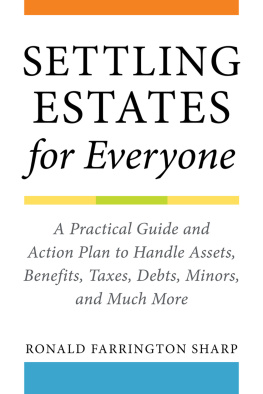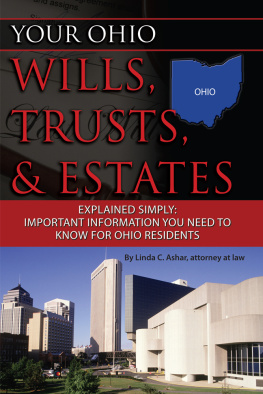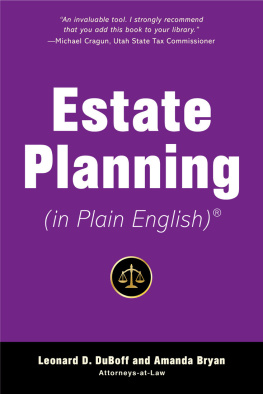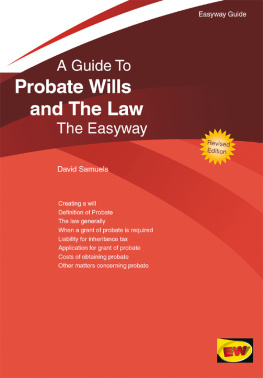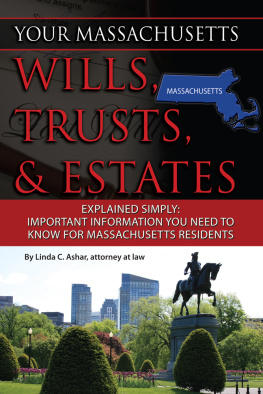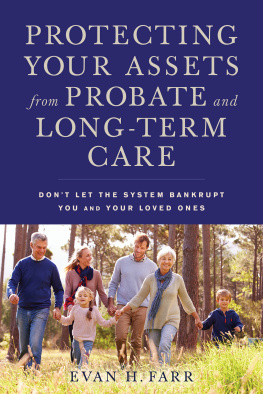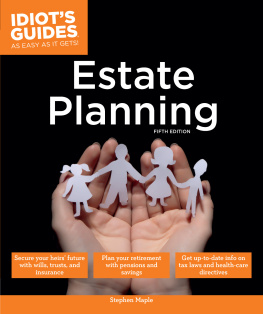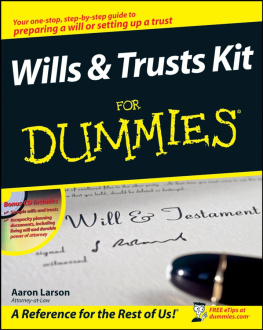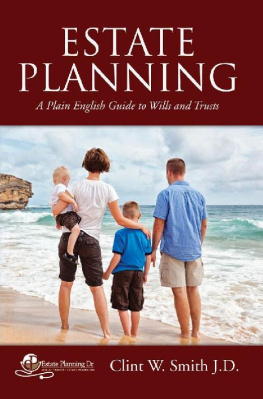Ronald Farrington Sharp - Living Trusts for Everyone: Why a Will Is Not the Way to Avoid Probate, Protect Heirs, and Settle Estates
Here you can read online Ronald Farrington Sharp - Living Trusts for Everyone: Why a Will Is Not the Way to Avoid Probate, Protect Heirs, and Settle Estates full text of the book (entire story) in english for free. Download pdf and epub, get meaning, cover and reviews about this ebook. year: 2010, publisher: Allworth Press, genre: Romance novel. Description of the work, (preface) as well as reviews are available. Best literature library LitArk.com created for fans of good reading and offers a wide selection of genres:
Romance novel
Science fiction
Adventure
Detective
Science
History
Home and family
Prose
Art
Politics
Computer
Non-fiction
Religion
Business
Children
Humor
Choose a favorite category and find really read worthwhile books. Enjoy immersion in the world of imagination, feel the emotions of the characters or learn something new for yourself, make an fascinating discovery.

- Book:Living Trusts for Everyone: Why a Will Is Not the Way to Avoid Probate, Protect Heirs, and Settle Estates
- Author:
- Publisher:Allworth Press
- Genre:
- Year:2010
- Rating:4 / 5
- Favourites:Add to favourites
- Your mark:
Living Trusts for Everyone: Why a Will Is Not the Way to Avoid Probate, Protect Heirs, and Settle Estates: summary, description and annotation
We offer to read an annotation, description, summary or preface (depends on what the author of the book "Living Trusts for Everyone: Why a Will Is Not the Way to Avoid Probate, Protect Heirs, and Settle Estates" wrote himself). If you haven't found the necessary information about the book — write in the comments, we will try to find it.
The misconceptions surrounding the last will and testament need to be put to rest: Wills benefit lawyers. Trusts benefit you. Period. Too often lawyers sell wills to clients only to sit back and wait to sell their probate services to their client s heirs. Modern estate planning should utilize the Living Trust as the effective, efficient, and inexpensive alternative to a will. Living Trusts for Everyone: Why a Will is Not the Way to Avoid Probate, Protect Heirs, and Settle explains why wills are not the best way to handle an estate and details the many advantages trusts have over wills in not only eliminating probate, but protecting your assets for your heirs. Anyone with minor children, disabled beneficiaries, blended families, or spendthrift heirs must have a trust to be sure the assets left behind are put to good use, and that your intentions are carried out. Lawyers may have vested interests in perpetuating the probate system, but this book will explain why legal services are not needed to do the clerical work in settling a trust after death. No legal jargon or confusing double-speak, just specific step-by-step instructions and sample form letters to settle a trust are included to take the mystery out of the process. This is not a do-it-yourself book and it doesnt try to cram every type of trust onto its pages. Living Trusts for Everyoneexplains in specific terms what benefit a trust will have for you and gives you the tools to settle a loved ones trust with no lawyers and no expense. For those who already have a trust, there is a list of what to look for to see if your trust is any good, or if it needs to be updated. Trust seminars are examined with warnings on what to look out for in setting up your trust. Everyone who cares about what happens to their assets at death should read Living Trusts for Everyone: Why a Will is Not the Way to Avoid Probate, Protect Heirs, and Settle!
Allworth Press, an imprint of Skyhorse Publishing, publishes a broad range of books on the visual and performing arts, with emphasis on the business of art. Our titles cover subjects such as graphic design, theater,
branding, fine art, photography, interior design, writing, acting, film, how to start careers, business and legal forms, business practices, and more. While we dont aspire to publish a New York Times
bestseller or a national bestseller, we are deeply committed to quality books that help creative professionals succeed and thrive. We often publish in areas overlooked by other publishers and welcome the author whose expertise can help our audience of readers.
Ronald Farrington Sharp: author's other books
Who wrote Living Trusts for Everyone: Why a Will Is Not the Way to Avoid Probate, Protect Heirs, and Settle Estates? Find out the surname, the name of the author of the book and a list of all author's works by series.

